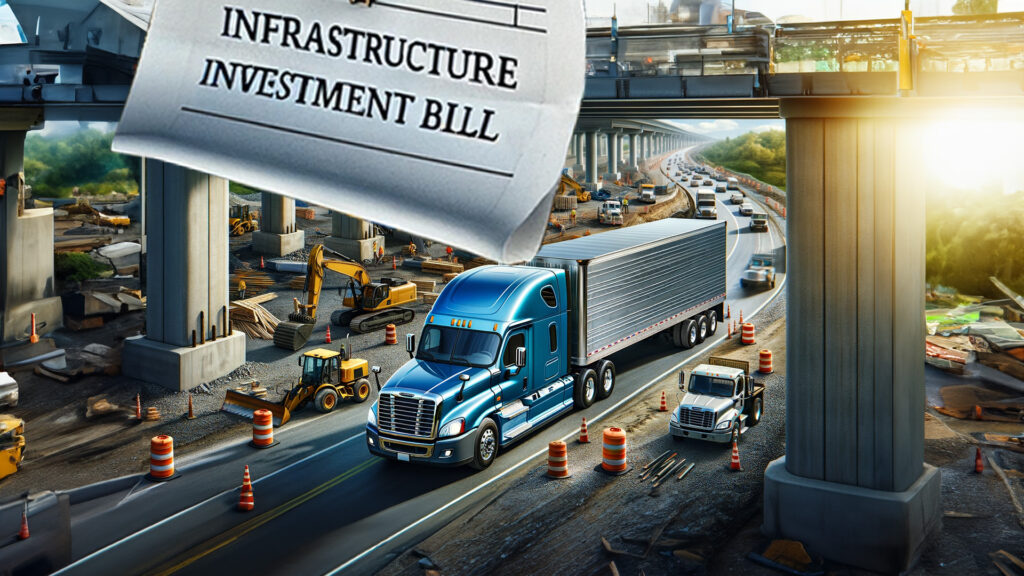
The recent passage of the infrastructure investment bill in Congress has sparked discussions across various sectors, particularly within the trucking industry. This monumental legislation promises significant implications for transportation networks, infrastructure development, and the overall economy. As the backbone of the supply chain, the trucking industry stands poised to both benefit from and adapt to the changes brought forth by this legislation.
Understanding the Infrastructure Investment Bill
The infrastructure investment bill, often dubbed as a once-in-a-generation investment, allocates substantial funding towards revitalizing the nation’s infrastructure. With a focus on repairing roads, bridges, ports, and transit systems, the bill aims to enhance connectivity, improve safety, and stimulate economic growth. For the trucking industry, which heavily relies on the efficiency of transportation infrastructure, these investments represent a pivotal opportunity to address longstanding challenges and bolster operational resilience.
Impact on the Trucking Industry
One of the most significant aspects of the infrastructure investment bill is its direct impact on the trucking industry. By allocating funds towards infrastructure projects, the bill addresses critical areas of concern such as road maintenance, congestion mitigation, and bridge repairs. Improved infrastructure translates to smoother, safer, and more efficient routes for truck drivers, ultimately reducing transit times and operational costs.
Enhancing Logistics Efficiency
The infrastructure investment bill also holds promise for enhancing logistics efficiency within the trucking industry. By modernizing and expanding transportation networks, the bill creates opportunities for optimized route planning, reduced fuel consumption, and increased capacity utilization. These improvements not only benefit trucking companies but also contribute to the overall competitiveness of businesses reliant on timely and reliable freight transportation.
Addressing Supply Chain Resilience
In light of recent supply chain disruptions, the infrastructure investment bill emerges as a crucial component of efforts to enhance supply chain resilience. By fortifying infrastructure resilience and redundancy, the bill helps mitigate the impact of disruptions caused by natural disasters, emergencies, or unforeseen events. For the trucking industry, this means greater reliability in delivering goods and services, even in the face of adversity.

Adapting to Regulatory Changes
As the infrastructure investment bill unfolds, trucking companies must remain vigilant in adapting to regulatory changes and compliance requirements. Increased funding for infrastructure projects may lead to stricter enforcement of safety standards, environmental regulations, and trucking policies. Staying informed and proactive in navigating these changes will be essential for maintaining operational efficiency and regulatory compliance.
Conclusion
The infrastructure investment bill represents a transformative opportunity for the trucking industry, offering the potential for improved infrastructure, enhanced logistics efficiency, and strengthened supply chain resilience. As stakeholders in the transportation ecosystem, trucking companies must embrace this opportunity to innovate, collaborate, and adapt to the evolving landscape. By leveraging the benefits of infrastructure investments, the trucking industry can chart a course towards a more sustainable, resilient, and prosperous future.
